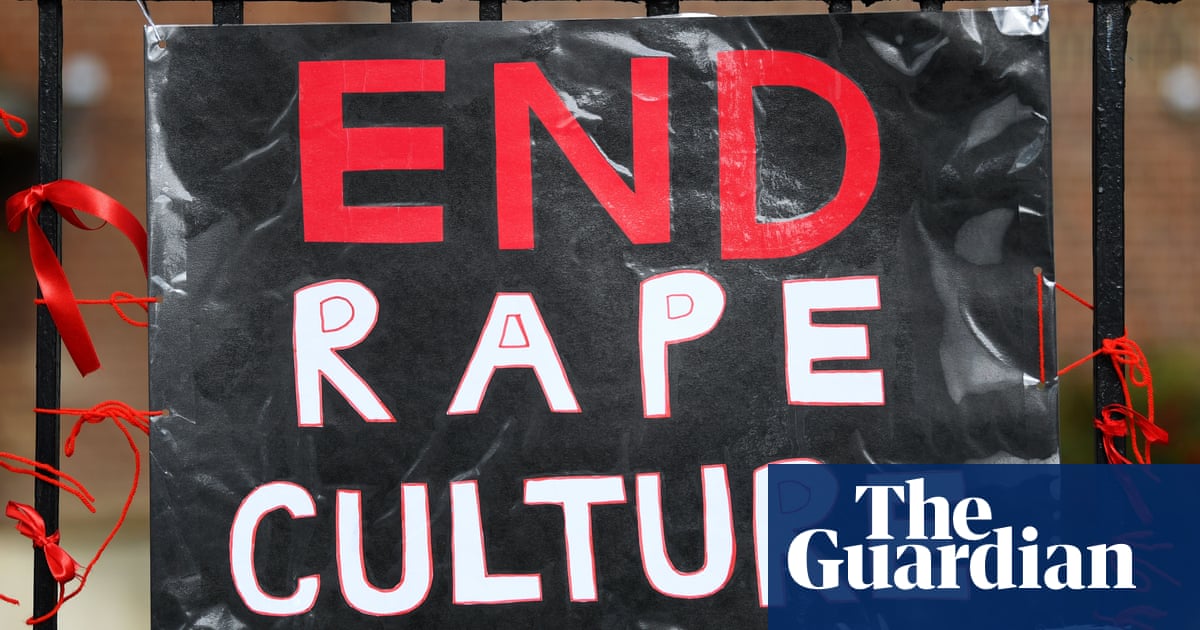Police and CPS must work together to address falling rape prosecutions report

The police and the Crown Prosecution Service must stop the “blame culture†that sees the organisations “pointing the finger†at each other for the failure of rape victims in the criminal justice system, according to a joint report from the police and CPS inspectorates.
In the first-of-its-kind joint report, the watchdogs said both organisations had to overcome the “deep division†between them and tackle the “underlying problem†of a culture of defeatism within their workforces, which made them more cautious in investigating and prosecuting rape cases compared with other crimes. The number of rape prosecutions has collapsed in the past five years.
“We were told time and again that these cases were difficult to investigate, difficult to prosecute, difficult to explain to victims, and difficult for juries to understand,†said the report.
“We are concerned that this mindset may be affecting police and CPS decision-making in many cases. We agree that rape cases can be â€" and often are â€" complex … [But] we conclude that the police and CPS can be more cautious in their approach to investigating and prosecuting rape cases than they are towards other types of offence.†The attitude was described as ‘defeatism’ by one victim representative, it added.
Her Majesty’s inspector of constabulary, Wendy Williams, said: “Both organisations [are] arguing that the other was to blame for low conviction rates, and we refer to this as finger-pointing.â€
The report from Her Majesty’s Inspectorate of Constabulary and Fire and Rescue Services (HMICFRS) and Her Majesty’s Crown Prosecution Service Inspectorate (HMCPSI) reviewed 500 “no further action†cases, where a decision had been taken not to advance the case to court.
It found that the average time for police to take a decision to take no further action was 79 days, it took 218 days for the police to refer the case to the CPS, and 456 for the CPS to then make a decision to not take the case to trial.
This contributed to a vicious cycle, which saw victims more likely to drop out because of delays and poor prosecution rates, it said.
While the report found some “some excellent examples†of joint working, a stated commitment to work together could not overcome the “deep division†between the police and CPS, according to the report, with police and prosecutors citing different data sets to defend their viewpoints.
“This approach suggests a lack of true acceptance of the fundamental need for joint ownership of the problems, and for a collaborative response to the systemic issues,†it stated. “Until this blame culture is eradicated, a real shift in attitudes seems unachievable.â€
It also criticised the police and CPS for focusing too heavily on complainant, rather than alleged perpetrator behaviour, a failing identified by the government’s landmark end-to-end review last month, which apologised for letting victims down. The inspectorate spoke to 26 victims for its report, unlike the government’s end-to-end-review, which was criticised for failing to do so.
Authors were struck by the “modest and achievable†nature of their requests, which included empathy, better communication, and explanation of what happens next. “These are all within the gift of the criminal justice system to get right now,†said Williams.
The report was also critical of data gathering, including the noting of protected characteristics such as race and disability, which data from the Office for National Statistics shows make victims more likely to be a victim of rape. In its analysis, ethnicity was not recorded for the victim in 167 of the 502 cases, and for the suspect in 194 cases.
There was also implicit criticism of the government in the report, which has been accused of producing positive messages about tackling the rape crisis, but not adequate funding.
But the inspectorate’s report states that current “police and CPS resources cannot meet the demand, and investigators do not always have the right training or experienceâ€, with workloads “often high and unmanageableâ€.
The rape review did not mention the impact of austerity cuts on the police, which saw specialist rape units disbanded as officer numbers were cut, and the CPS, which has seen a 30% staff reduction since 2010.
The government has pointed to new £3.2m funding for a joint police/CPS pilot that will encourage a greater focus on perpetrators, as well as £40m support services funding, including £16m to recruit more independent sexual violence advisers.
Asked if austerity had made prosecuting rape more difficult, Williams said: “We do welcome the funding that’s been provided […] but it’s undoubtedly the case that austerity has led both agencies to restructure and to deal with matters in a different way.†Funding for “appropriate specialist capability and capacity†and victims services was “essentialâ€, she added.
0 Response to "Police and CPS must work together to address falling rape prosecutions report"
Post a Comment